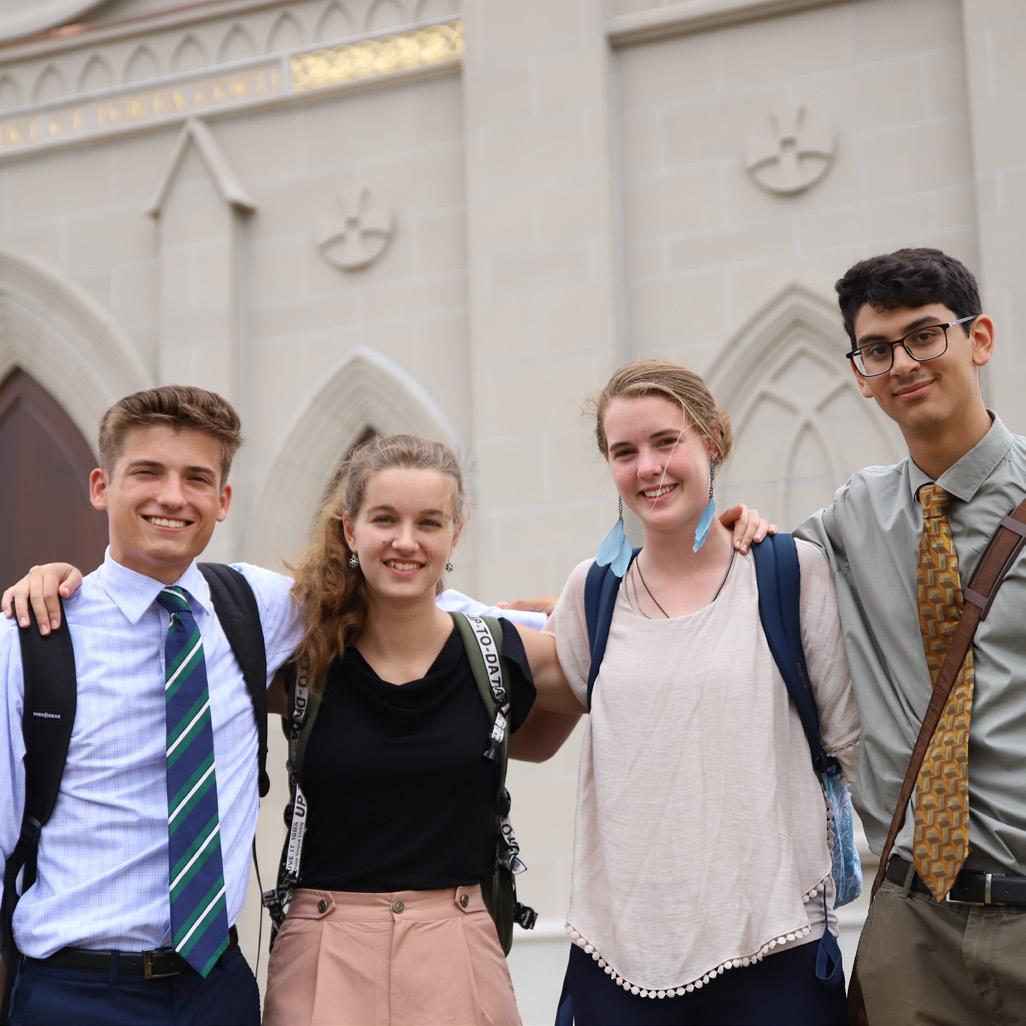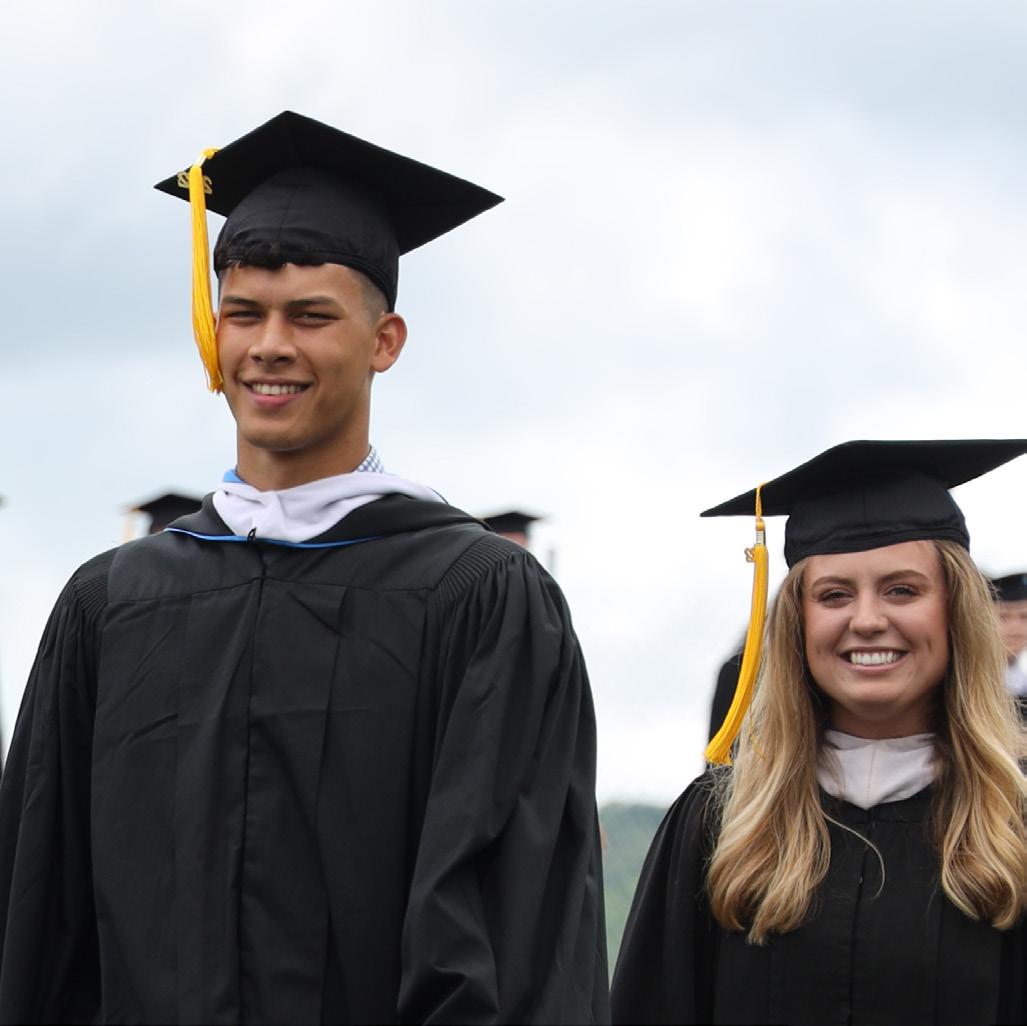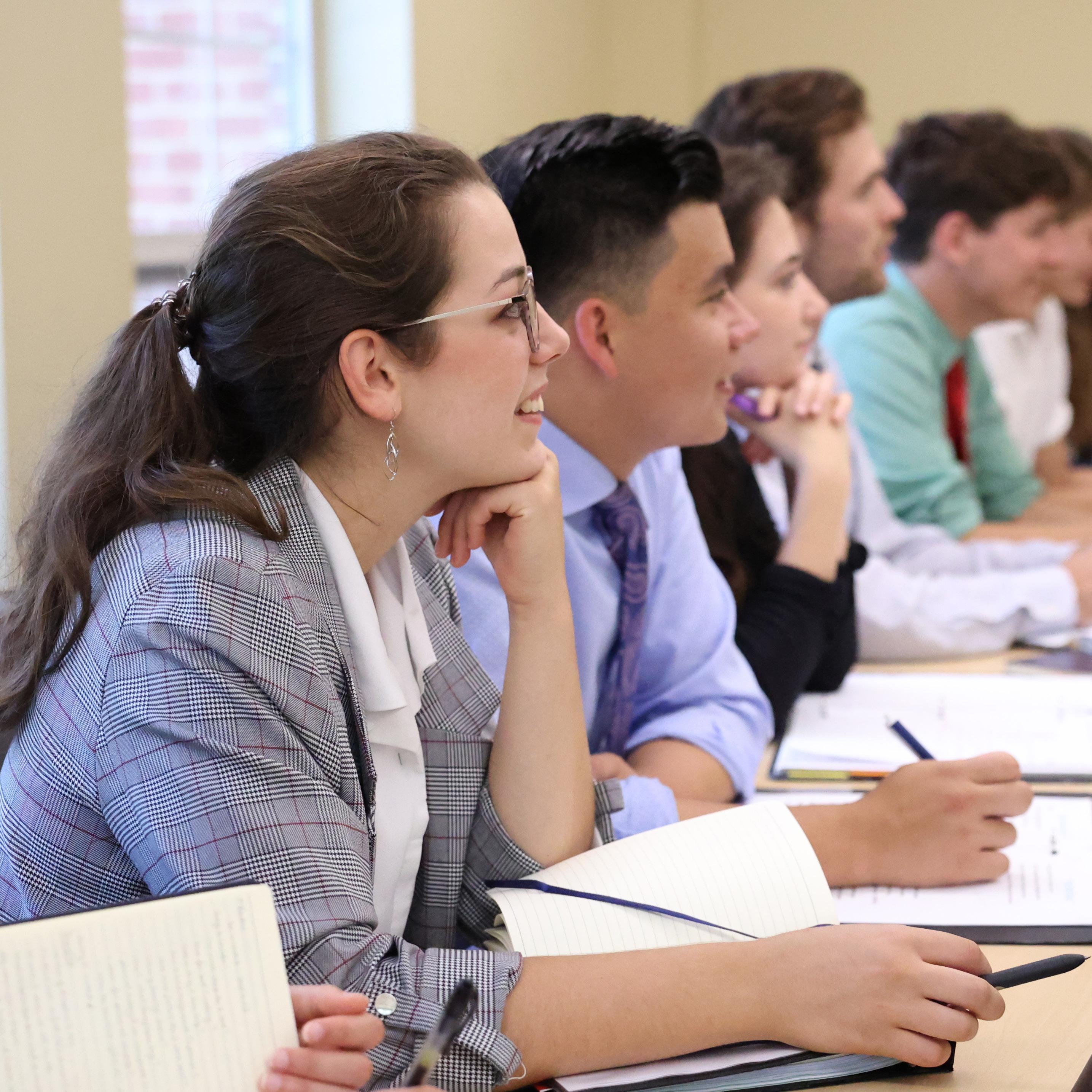
3 minute read
LIBERAL EDUCATION
from its beginning, christendom college has been committed to Catholic liberal education, but few in our time understand what liberal education is. An explanation must begin with freedom: a liberal education is the education of a free man. It prepares man for true freedom and fosters that freedom within him. The most obvious characteristic of the free man is that he is not a slave, that he is able to choose for himself, but the modern mind stops here. It understands freedom only as a lack of repression. But true freedom is not just a lack, it is something positive, an ability to direct one’s actions rationally. No one can direct himself rationally without a goal, without understanding the true purpose of human existence, the achievement of the good. The truly free man, then, lives a good life; he pursues what is truly good, both for himself and for society.


Because the free man pursues what is good for society, true freedom presumes a knowledge of how to be a good citizen in a wise political order. The free man thus must be a man of virtue, justice, and prudence. But it would be unfitting if, pursuing what is good for others, he failed to achieve what was good for himself. The free man, then, also pursues his own perfection, especially the perfection of that part of himself which is best. Since the soul transcends the body, the free man cultivates his soul and pursues for its own sake the soul’s proper object: wisdom, and the knowledge and understanding of the whole of reality.
But man is born with neither a strong inclination to the good nor even a knowledge of it. Even as a man matures, he does not spontaneously become wise and virtuous. He must acquire wisdom, both practical and speculative, through learning, and the beginning of that learning process beyond childhood is called liberal education. Liberal education, then, pursues two ends: a knowledge of virtue and justice, and a knowledge of the whole of reality, its ultimate cause and purpose. These two ends, each good in itself, are united in one order: the practice of virtue and justice serves to bring about the acquisition of wisdom. Liberal education is thus an education of the whole man; an education in wisdom and in the virtues that serve wisdom.
Even now, our account of liberal education is not complete; justice and virtue are not the only requirements for wisdom. Just as a craftsman, before he even begins to make anything, must learn what his tools are, and then how to use them, so the man who would be wise first must find and learn to use the tools of learning, which since medieval times are called the liberal arts (cp. Dorothy L. Sayers, The Lost Tools of Learning). Each of the liberal arts contributes in a unique way to the formation of the mind, enabling it to understand every aspect of reality. For instance, grammar equips a man to express his thoughts with clarity and accuracy, and to understand the expression of others; logic enables him to test the validity of a line of reasoning; and rhetoric teaches him how to frame beautiful and persuasive discourses. Again, literature and history reflect the experience necessary to understand realities of the moral and political life. Also, mathematics fosters a love for rigor and precision. In general, the liberal arts provide the skills and habits necessary for the pursuit of wisdom and so are an integral part of liberal education.
Liberal education, then, must have at least these three parts: first, it must include training in ethics and politics; second, it must include the liberal arts, the indispensable tools of learning; finally, it must include the pursuit of wisdom itself, which is called “philosophy.”
An education, however, that simply combines these disciplines in a shapeless whole is not complete. Cardinal Newman teaches that the philosophy that liberal education seeks “consists in a comprehensive view of the truth in all of its branches, of the relation of science to science, of their mutual bearings, and their respective values.” That is, the parts of a liberal education fall into a determinate order. Each part is good in itself, perfecting the mind in a fundamental way, but the first two parts of liberal education are also servants of the third part. That is, ethics, politics, and the liberal arts, while enjoying a legitimate autonomy, have an intrinsic ordering to philosophy. Liberal education becomes a coherent and fulfilling education for the truly free man through this ordering. E









